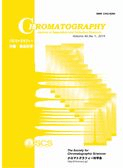
Chromatography
Scope & Guideline
Elevating analytical science through rigorous chromatography studies.
Introduction
Aims and Scopes
- Separation Techniques:
The journal emphasizes the development and optimization of novel separation techniques, including high-performance liquid chromatography (HPLC), capillary electrophoresis, and two-dimensional chromatography, aimed at enhancing the efficiency and selectivity of analyte separation. - Analytical Method Development:
A core focus is on the design and validation of analytical methods for complex samples, particularly in the context of pharmaceuticals, environmental monitoring, and food safety, ensuring accurate and reliable measurements of target compounds. - Chiral Analysis:
There is a consistent emphasis on chiral separation and analysis, reflecting the importance of stereochemistry in drug development and metabolic studies. The journal publishes studies that detail innovative approaches to enantioselective separations. - Application of Chromatographic Techniques:
The journal showcases applications of chromatographic methods across diverse disciplines, including biomedical research, environmental analysis, and food quality control, highlighting the versatility and relevance of chromatography in real-world scenarios. - Integration with Mass Spectrometry:
The integration of chromatography with mass spectrometry (MS) is a recurring theme, underscoring the importance of hyphenated techniques for comprehensive analysis and characterization of complex mixtures.
Trending and Emerging
- High-Throughput and Automation:
There is an increasing focus on high-throughput methods and automated systems for chromatographic analysis, reflecting the demand for faster and more efficient workflows in laboratories. - Multidimensional Chromatography:
Emerging interest in multidimensional chromatographic techniques, particularly two-dimensional LC, is evident. These methods enhance separation power and resolution for complex samples, making them increasingly relevant for sophisticated analytical applications. - Bioanalytical Applications:
The journal is witnessing a rise in studies related to bioanalytical applications, particularly in the analysis of biomolecules such as proteins, peptides, and metabolites, which are critical for drug development and personalized medicine. - Green Chemistry and Sustainable Practices:
There is a growing emphasis on environmentally friendly methodologies and sustainable practices in chromatography, including the development of greener solvents and reducing waste in analytical processes. - Innovations in Chiral Separation:
The exploration of novel chiral stationary phases and innovative techniques for enantioselective separations is becoming increasingly prominent, driven by the need for precise analysis in pharmaceuticals and food safety.
Declining or Waning
- Traditional Chromatographic Techniques:
There appears to be a decreasing emphasis on classical chromatographic methods without novel advancements or applications, as researchers increasingly seek innovative and efficient approaches that leverage modern technology. - Basic Method Comparisons:
Studies that focus solely on comparative analyses of established chromatographic methods without introducing new insights or applications have become less prominent, as the field moves towards more application-driven research. - Single-Analyte Methods:
Research centered on the development of methods for the analysis of single analytes is becoming less common, with a trend towards multiplexing and simultaneous analysis of multiple components in complex matrices. - Basic Theoretical Studies:
Theoretical explorations of chromatography that do not lead to practical applications or advancements in methodology are seeing a decline, as the emphasis shifts to studies with clear real-world implications.
Similar Journals
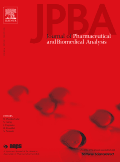
Journal of Pharmaceutical and Biomedical Analysis
Unraveling complexities in drug development and clinical biochemistry.The Journal of Pharmaceutical and Biomedical Analysis, published by ELSEVIER and available in print and online formats, stands as a pivotal source of knowledge in the realms of Analytical Chemistry, Clinical Biochemistry, Drug Discovery, and Pharmaceutical Science. With an ISSN of 0731-7085 and an e-ISSN of 1873-264X, this journal is dedicated to publishing high-quality research that advances the understanding and development of analytical techniques in pharmaceuticals and biomedicine. The journal has earned a solid reputation, reflected in its Q2 category rankings across five distinct fields for 2023, and boasts impressive Scopus rankings, signaling its robust impact within the academic community. The Journal of Pharmaceutical and Biomedical Analysis serves as an essential resource for researchers, professionals, and students alike, providing actionable insights and fostering innovation that can directly influence future advancements in drug development and biomedical applications.

Brazilian Journal of Analytical Chemistry
Bridging Gaps in South American Analytical ScienceBrazilian Journal of Analytical Chemistry, published by VISAO FOKKA COMMUNICATION AGENCY, serves as a vital platform for those engaged in the field of analytical chemistry, especially within the Latin American context. With an ISSN of 2179-3425 and an E-ISSN of 2179-3433, this journal aims to promote high-quality research and advancements in analytical methodologies, instrumentation, and applications spanning from 2010 to the present. Although it currently holds a Q4 rank in Analytical Chemistry by Scopus and is placed at the 24th percentile, its commitment to open access publishing provides invaluable opportunities for widespread dissemination of knowledge, catering to researchers, professionals, and students alike. The journal's editorial board comprises emerging and established experts aiming to bridge gaps in analytical chemistry research, particularly in a Brazilian and broader South American context. Situated in São Paulo, Brazil, the journal's role in fostering innovation and collaboration in analytical techniques makes it an essential resource for the academic community.

Separation Science Plus
Connecting scholars to the forefront of separation innovation.Separation Science Plus is an emerging academic journal dedicated to advancing the field of analytical chemistry and separation science. Published by WILEY-VCH Verlag GmbH, this journal provides a platform for researchers to disseminate high-quality studies and reviews that address innovative techniques and breakthroughs in separation methodologies. With its ISSN 2573-1815, the journal has made significant inroads since its inception in 2018, encompassing a convergence period until 2024. Despite currently holding a Q3 ranking in Analytical Chemistry and a Q4 ranking in Filtration and Separation, its dedication to publishing impactful research makes it a vital resource for professionals and students alike. The journal operates under the robust scholarly reputation of WILEY, which is known for its commitment to excellence in scientific communication. Researchers interested in the latest advancements in separation techniques will find Separation Science Plus an essential read, fostering the exchange of knowledge and facilitating greater understanding within this specialized field.
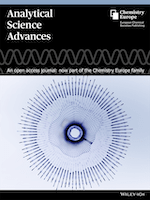
Analytical Science Advances
Exploring Innovative Methodologies in Analytical ScienceAnalytical Science Advances is a dynamic journal published by WILEY, dedicated to the ever-evolving field of analytical chemistry. With an ISSN of 2628-5452, this open-access platform aims to disseminate high-quality research and insightful reviews that push the boundaries of analytical methodologies and instrumentation. Since its inception in 2020, the journal has gained traction, securing a commendable Q2 ranking in 2023 within its category, highlighting its significance in the scientific community. Currently positioned at Rank #68 out of 156 in Scopus' analytical chemistry category, it boasts a 56th percentile ranking, reflecting its contributions to advancing analytical techniques. Researchers, professionals, and students will find this journal an invaluable resource for keeping abreast of the latest developments, emerging technologies, and innovative approaches in analytical science, ensuring the journal's relevancy and influence in shaping future discoveries.
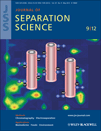
JOURNAL OF SEPARATION SCIENCE
Exploring Breakthroughs in Filtration and SeparationJOURNAL OF SEPARATION SCIENCE, published by WILEY-V C H VERLAG GMBH in Germany, is a premier platform dedicated to the advancement of knowledge in the fields of analytical chemistry and filtration and separation technologies. With an impact factor that reflects its strong influence—ranking #42 in Analytical Chemistry and #8 in Filtration and Separation—the journal strives to disseminate high-quality research findings from both academia and industry. The journal has established a significant readership, evidenced by its Scopus rankings, and is indexed under ISSN 1615-9306 and E-ISSN 1615-9314. As part of its commitment to accessibility, the journal provides open access options, enabling broader dissemination of innovative research. Since its convergence in 2000 and continuing through 2024, JOURNAL OF SEPARATION SCIENCE has become essential for researchers, professionals, and students aiming to stay at the forefront of separation science methodologies and applications, thereby actively influencing advancements in both theoretical knowledge and practical implementations.
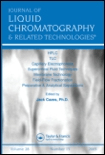
JOURNAL OF LIQUID CHROMATOGRAPHY & RELATED TECHNOLOGIES
Connecting Disciplines Through Chromatographic InsightsJOURNAL OF LIQUID CHROMATOGRAPHY & RELATED TECHNOLOGIES, published by Taylor & Francis Inc, is a pivotal platform for disseminating cutting-edge research in the field of liquid chromatography and its applications across various disciplines including analytical chemistry, biochemistry, and pharmaceutical science. With an ISSN of 1082-6076 and an E-ISSN of 1520-572X, this journal serves as an essential resource for researchers, professionals, and students committed to advancing the understanding and development of chromatographic techniques. Despite not being an open access publication, the journal features a robust submission process from 1996 to 2024, ensuring comprehensive coverage of historical and contemporary methodologies. Notably, it has achieved rankings in the Q3 and Q4 quartiles across various categories, reflecting its reputable position in the field. It’s recognized within key databases, with Scopus ranks indicating its influential role in areas such as pharmaceutical science and analytical chemistry. This journal is not only a cornerstone for specialized studies but also fosters interdisciplinary collaborations, making it an invaluable asset for the scientific community.

Chinese Journal of Chromatography
Transforming Challenges into Solutions through ChromatographyChinese Journal of Chromatography, published by SCIENCE PRESS, is a dedicated platform for disseminating pioneering research in the fields of Analytical Chemistry, Biochemistry, and Organic Chemistry. Established in 1997, this esteemed journal offers invaluable insights into chromatographic techniques and their applications, showcasing studies that contribute to the advancement of chemical engineering and electrochemistry. Although it currently holds a Q4 ranking in several categories, the journal aims to foster growth and knowledge among researchers, professionals, and students alike. With a continuous publication window extending until 2024, the Chinese Journal of Chromatography invites submissions that not only enhance scientific understanding but also address real-world challenges through innovative chromatographic solutions. Researchers looking for a collaborative community will find this journal a vital resource in their ongoing academic endeavors.
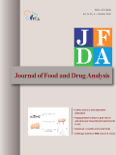
JOURNAL OF FOOD AND DRUG ANALYSIS
Pioneering Research for Global Health and SafetyJOURNAL OF FOOD AND DRUG ANALYSIS, an esteemed publication in the realms of Food Science and Pharmacology, is published by DIGITAL COMMONS BEPRESS. With an impactful commitment to open access since 2013, this journal facilitates the dissemination of critical research findings, making them readily available to a global audience. Boasting a commendable Q2 ranking in both Food Science and Pharmacology, the journal occupies a prominent position in its respective categories, reflecting its quality and relevance in the field. Established in 1994, the journal has successfully converged its focus to encompass a wide range of topics related to the analysis of food and drugs, thereby providing valuable insights to researchers, practitioners, and students alike. With its indexed indicators in Scopus showcasing a strong performance—ranking #85 among 389 in Food Science and #108 among 313 in Pharmacology—it stands as a crucial platform for the advancement of knowledge and innovation. For those looking to stay abreast of pivotal developments in food safety and drug efficacy, JOURNAL OF FOOD AND DRUG ANALYSIS is an indispensable resource.

BUNSEKI KAGAKU
Cultivating Knowledge in Analytical Chemistry Since 1952BUNSEKI KAGAKU, published by the Japan Society Analytical Chemistry, is a reputable journal dedicated to the field of analytical chemistry. With an ISSN of 0525-1931, this journal has been a crucial outlet for scholarly communication since its inception in 1952, converging its publication years from 1954 to 1957 and from 1959 to 2024. Although it holds a Q4 category ranking in the most recent 2023 quartiles of analytical chemistry and ranks 153/156 in Scopus, it continues to serve as a platform for quality research, fostering advancements in the field. BUNSEKI KAGAKU is based in Tokyo, Japan, and emphasizes the critical importance of analytical techniques in scientific inquiry. With a commitment to professionalism and rigor, the journal provides a vital resource for researchers, students, and professionals seeking to explore innovative methodologies and contribute to the ongoing dialogue in analytical chemistry.
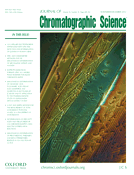
JOURNAL OF CHROMATOGRAPHIC SCIENCE
Innovating Techniques for Analytical ExcellenceWelcome to the Journal of Chromatographic Science, a premier publication dedicated to advancing the scientific understanding of chromatographic techniques and their applications across various disciplines. Published by Oxford University Press Inc, this journal, with its ISSN 0021-9665 and E-ISSN 1945-239X, has been disseminating innovative research since 1963, serving as a vital resource for researchers, industry professionals, and academic scholars in the fields of Analytical Chemistry and Medicine. As evidenced by its 2023 Scopus ranking, the journal stands at the Q3 quartile in both its primary disciplines, highlighting its relevance and contribution to ongoing research. The journal promotes high-quality, peer-reviewed articles that aim to foster knowledge and encourage the practical application of chromatographic science. While it operates under a traditional subscription model, the valuable insights it offers are essential for those seeking to enhance their expertise and stay at the forefront of chromatographic methodologies. Join our community of scholars as we explore the complexities and innovations in chromatographic science, paving the way for future discoveries.